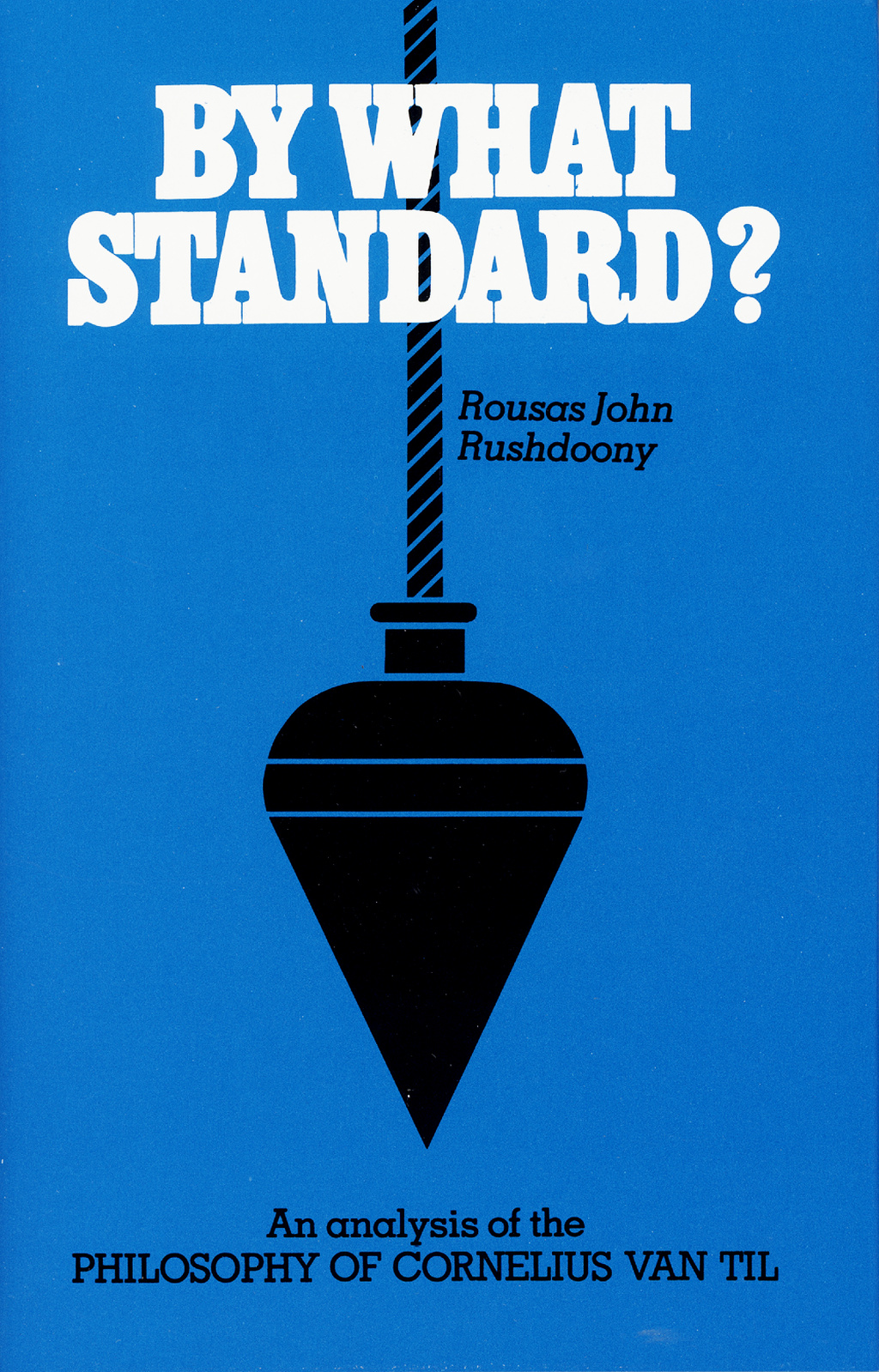
By What Standard
This book focuses on the philosophical system of Dr. Cornelius Van Til, and the necessity of Christian theology for all philosophy.
eBook , Hardcover , Used

- R. J. Rushdoony
An introduction into the problems of Christian philosophy. It focuses on the philosophical system of Dr. Cornelius Van Til, which in turn is founded upon the presuppositions of an infallible revelation in the Bible and the necessity of Christian theology for all philosophy.
Basic to this study is the belief that presuppositions of human thought in every field must be basically one in order to arrive at any concept which validates both biblical faith and human knowledge. The sovereignty of the self-contained God is the key to every field, in that only the God of Scripture makes all things possible and explicable and is thus the basic premise not only of theology, but of philosophy, science and indeed all knowledge. In that God is the creator of all things, He is their only valid principle of interpretation, in that they derive both their existence and meaning from His creative act. This belief is herein set forth in terms of various aspects of human thought.
Again, basic to this study is the belief that such a philosophy finds consistent and able exposition in the writings of Cornelius Van Til. This work, therefore, is thus both an exposition of a philosophy, and an exposition, as well, of Van Til’s development of that philosophy, a school of thought to which this writer subscribes.
This is Rushdoony's foundational work on philosophy.

- R. J. Rushdoony
Rev. R.J. Rushdoony (1916–2001), was a leading theologian, church/state expert, and author of numerous works on the application of Biblical law to society. He started the Chalcedon Foundation in 1965. His Institutes of Biblical Law (1973) began the contemporary theonomy movement which posits the validity of Biblical law as God’s standard of obedience for all. He therefore saw God’s law as the basis of the modern Christian response to the cultural decline, one he attributed to the church’s false view of God’s law being opposed to His grace. This broad Christian response he described as “Christian Reconstruction.” He is credited with igniting the modern Christian school and homeschooling movements in the mid to late 20th century. He also traveled extensively lecturing and serving as an expert witness in numerous court cases regarding religious liberty. Many ministry and educational efforts that continue today, took their philosophical and Biblical roots from his lectures and books.